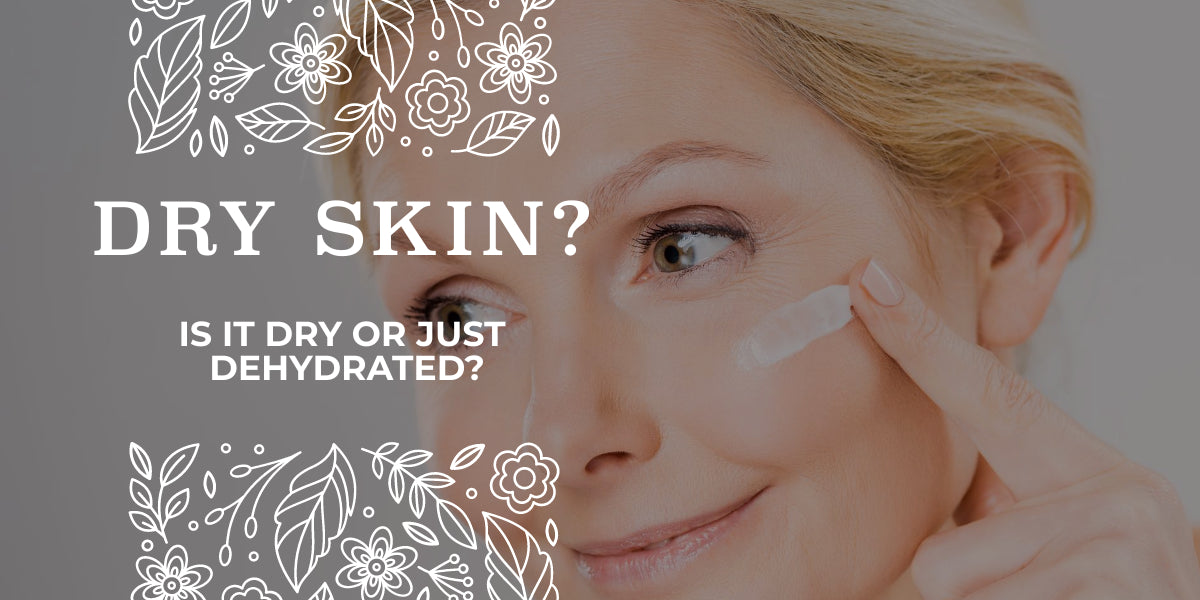
Lots of us self-diagnose ourselves as having dry skin. Our face feels dry, tight, dull and rough. However it might not be dry, but dehydrated and this prognosis matters as the treatment for each skin condition.
So, what is the difference between dry and dehydrated skin. How do you tell which you have and once you know which one you have - what do you do about it?
Dry skin is when your skin doesn’t produce enough oil to lubricate the skin. This can be genetic and also becomes more common as we age. Your skin is probably also dehydrated as the oils in our skin helps lock in moisture, so you might be losing more moisture than you add.
Dehydrated skin is when there is not enough moisture in the skin. Even oily skinned people can have dehydrated skin and it is commonly caused by not drinking enough water or cold weather.
The question is, how do you tell which skin condition you have? Just rub a bit of your favourite moisturiser into the back of your hand. If it quickly disappears into the skin you probably have dehydrated skin. If your skin also feels tight, it’s definitely dehydration.
Conversely, if your skin doesn’t exactly feel tight, but it is rough and dull, it is probably dry.
Fixing dehydrated skin is relatively easy. You drink more water and you apply moisturiser more often. Staying away from hot baths and showers is also advised. You should consider using a moisturising serum containing a humectant like glycerine or hyaluronic acid.
If you have dry skin you need to exfoliate and moisturise with a rich moisturiser or facial oil. Exfoliating is important because your skin needs oils to be naturally shed (known as desquamation) this build up of cells will make your skin look dull and will prevent your moisturiser sinking in. Then you need to add oils back into the skin using a rich moisturiser that will help lubricate the skin and lock in moisture. There are lots of facial oils and serums on the market that replicate natural skin oils (known as natural moisturising factors).
So, if you suffer from dull lifeless skin - hopefully you know have all the information you need to diagnose and treat it yourself.
